President-elect Donald Trump’s top cabinet picks—including Mike Flynn, Jim Mattis, and Rex Tillerson—represent different foreign policy and national security factions, writes Thomas Wright. Together, they could fundamentally alter U.S. foreign policy. This piece originally appeared on Foreign Policy.
Understanding Donald Trump’s foreign policy is truly an exercise in separating the signal from the noise. Trump says and does so much, often on a whim, that it can overwhelm the senses. There is so much that he knows so little about—Taiwan, for instance—that it is hard to say if small actions are part of a coherent strategy or if he’s simply winging it.
But now that the president-elect has announced his picks for key foreign-policy positions, his foreign policy is starting to become clear or at least clearer. Though Trump’s own foreign-policy views are captured by his “America First” slogan, his administration will be split between three national security factions—the America Firsters, the religious warriors, and the traditionalists—each of which distrusts the others but also needs them to check the third. The question is what effect this power struggle will have on U.S. foreign policy, particularly amid a crisis—and whether Trump, over time, will insist on asserting his personal will against the other factions with which he has surrounded himself.
America first
Few people think of Trump as a foreign-policy thinker. He has been on every side of numerous issues, including climate change, Syria, North Korea, Iraq, and nuclear weapons. However, it is indisputable that Trump has a small number of core beliefs dating back three decades about America’s role in the world. His overarching worldview is that America is in economic decline because other nations are taking advantage of it.
Three beliefs stand out. Trump has been a staunch critic of America’s security alliances since 1987 and has demanded that U.S. allies transfer vast sums of money to the United States in exchange for protection. He has opposed every trade deal the United States has signed since World War II and advocated for the widespread use of tariffs. And he has a soft spot for authoritarian strongmen, particularly of the Russian variety. This appears to date back to 1990 when he visited Russia and came back deeply disillusioned in Mikhail Gorbachev and convinced that Moscow should have emulated China’s repression in Tiananmen Square. Trump has been consistent on each of these issues for 30 years. For a detailed analysis of his statements and writings on these topics, see here and here. Trump repeatedly raised these views in the campaign, even when it was politically risky to do so (as in his praise of Vladimir Putin).
The big question has been whether and how Trump may act on these beliefs and convert them into policy. Trump is unlikely to unilaterally withdraw from America’s treaty alliances and commitments, but he is also unlikely to support and uphold them as much as his predecessors have. If one looks closely at his statements over the past three decades, Trump’s frustration is that the United States gets little for protecting other countries or securing the global order, which he sees as a tradable asset that America can use as a bargaining chip with friend and foe alike.
For instance, when asked in an interview with Fox News Sunday about his call with Taiwanese President Tsai Ing-wen, he said, “I don’t know why we have to be bound by a One-China policy unless we make a deal with China having to do with other things, including trade.” The implication was that if China were to make major concessions on the economic front, Taiwan may be on the table. Indeed, the Taiwan call fits into the negotiating framework described in his book The Art of The Deal, which describes how Trump would open up previously closed issues to get leverage that could later be traded in a negotiation. So, what is it that Trump wants? Anecdotal evidence from the past month suggests that his top concern in discussion with foreign leaders and diplomats is: “What’s in it for America economically?” He wants major concessions on the terms of America’s economic relationship with other countries, including greater direct investment in the United States.
This would be a revolutionary diplomatic strategy. For 70 years, the United States has protected its alliances and refused to abandon them under pressure from rivals. The United States does not do deals with Russia and China over the heads of its friends—the mantra has been “nothing about you without you.” Trump is signaling something different. Allies that are seeking bilateral trade deals with the United States should be cautious. The United Kingdom, for instance, may find that a President Trump will ask London what it is willing to pay for continued military and intelligence cooperation.
The mystery in all of this is why Trump is so keen to work with Russia. The United States has little economic interest in the Russian economy. Trade and investment are miniscule compared with China. And Russia has very little that the United States wants. Instead, the demand for change comes almost entirely from Russia—on NATO, sanctions, and in the Middle East. But Trump’s fondness for Russia, however idiosyncratic, is long-standing and unwavering.
But although Trump may have strong foreign-policy views, he does not have a large cadre of followers willing and capable of turning his worldview into reality. Steve Bannon, his chief strategist and an avowed nationalist, is an exception, though he is not a foreign-policy professional. The Republican Party’s foreign-policy establishment overwhelmingly rejected Trump because they took him at his word and saw him as a threat to the U.S. postwar strategy. Some—the #NeverTrumpers—signed a letter opposing him. Others left the door open to serving but primarily because they wanted to prevent him from realizing his decades-old ambition. Trump lacked allies for his cause, but he found them in another place.
Religious warriors to Trump’s rescue
Republican foreign policy since 9/11 has had two basic strands, which sometimes contradict each other. The first is that the United States is in an existential fight against radical Islam. The second is that America’s global interests involve the maintenance of U.S. leadership in Europe and East Asia—interests, in other words, that extend far beyond combating radical Islam. The Republican establishment has always toed the line on the first, but it has increasingly focused much more on the second. The global war on terror has, of late, taken second place to balancing China and containing Russia.
But a group within the Republican tent never made this shift. These are the people who believe the United States is engaged in a war against radical Islam that is equivalent to World War II or the Cold War. They believe it is a struggle rooted in religion to which all else should be subservient—that America’s overwhelming focus must be on radical Islam instead of revisionist powers in Europe or Asia. They also generally favor moving away from a values-based foreign policy to harsh methods to wage a major war.
For the most part, the leaders of this school of thought have been dismissed as cranks or ideologues. But their views were widely shared in the Republican electorate, who were increasingly alarmed by the Islamic State. And they found an ally in Trump.
In January and February, Trump was under pressure to unveil a foreign-policy team. The Republican foreign-policy establishment overwhelmingly condemned him, largely because of his America First views. It was at this point that retired Lt. Gen. Michael Flynn started advising him. Flynn won plaudits in the mid-2000s for his role in the intelligence effort against al Qaeda in Iraq, but when he was appointed head of the Defense Intelligence Agency, he ran into trouble for his management style and policy views. He was forced out of his position and subsequently made it clear that he thought the Obama administration was not taking radical Islam seriously. Several weeks after Flynn came on board, Trump rolled out a list of foreign-policy advisors. Most were completely unknown, but the name Walid Phares stood out. Phares has a controversial past as a leading figure in a Lebanese Christian militia and is known as a hard-liner in the war on terror. Other such hard-liners would follow.
Trump made the fight against radical Islam the heart of his foreign policy in the campaign, and it allowed him to promote his America First worldview by translating it into terms recognizable to Washington. Being pro-Russia is not a popular position in U.S. politics, but it sounds more plausible if voters believe that radical Islam is an existential threat. The specter of radical Islam also provided a context for Trump’s view that NATO is obsolete and the United States is doing too much in Asia.
This group sees Trump as a means of waging the war on terror, but they do not fully buy into the rest of his worldview.
The effect of this alliance was to elevate advisors and politicians who believe that radical Islam is a new world war that justifies an extraordinary response. This group sees Trump as a means of waging the war on terror, but they do not fully buy into the rest of his worldview. Even though they see other challenges as secondary, they are reluctant to collapse U.S. influence in Asia and Europe and hand those regions over to China and Russia. During the campaign, there were numerous reports that these advisors had personally assured foreign ambassadors that Trump did not really mean what he said on alliances and trade. He was, they said, looking for a marginally better deal. Notably, this never came from Trump himself, and it is unlikely that he knew of these briefings. Whenever Trump spoke on these topics—in the debates or at rallies—he was as uncompromising as ever.
Looking for a traditionalist safety net
The Trump administration will take office with these two ideas in the ascendant—Trump’s version of America First and those who want to wage all-out war against radical Islam—but both are crude and underdeveloped. There are no specific policy proposals about how to implement either approach, let alone reconcile them. Instead, there are vague headline-grabbing gestures—call radical Islam for what it is, use waterboarding, stand up to allies, “bomb the shit out of ISIS,” and so on. There has never been a foreign-policy school of thought that won an election and is less prepared to govern than America First or the desire to fight a religious war.
Consider, for example, Flynn’s book, The Field of Fight, published this year. The book is written in Flynn’s voice, but his co-author is Michael Ledeen, a hard-liner known for wanting to wage war against radical Islam. In it, Flynn writes that the Muslim world is a “spectacular failure” and radical Islam now represents this “failed civilization.” He argues, without providing any evidence, that radical Islam is in an active alliance with Russia, China, North Korea, Cuba, and Venezuela, all of which share a “hatred of the West.” He calls for the United States to wage a war against this alliance on a scale comparable to World War II or the Cold War. He states repeatedly that the United States must counter Iranian influence, including in Syria.
It’s a mystery what could motivate a foreign policy professional to espouse such views or what practical policy agenda could possibly emerge from them. That’s not to mention Flynn’s history of appearing regularly on RT, a Kremlin-funded TV station; meeting with Putin; saying positive things about Russia; and proposing partnerships with Moscow to fight the Islamic State. He did this before and after his book was published. One interpretation is that the Russia sections of the book more reflect Ledeen’s views and Flynn went along. Alternatively, perhaps Flynn adjusted his views on Russia to align with Trump’s after the book was finished but before it was published. Either way, it raises many more questions about Flynn’s future policy advice than it answers.
Trump and the religious warriors know that they cannot govern alone or just with each other.
Trump and the religious warriors know that they cannot govern alone or just with each other. With his isolationist tendencies, Trump likely worries that the religious warriors will drag him into new wars in the Middle East that he wants to avoid. For their part, the religious warriors worry that Trump will use the partnership with Russia to largely abandon the Middle East and empower Iran. They also have no desire to liquidate America’s alliances, and some are wary about Russian influence in Europe. Moreover, neither the America Firsters nor the religious warriors have the number of qualified people required to take over all of the key foreign-policy positions in government, especially for Europe and Asia.
This is where the traditionalists come in. The traditionalists include all those officials who support the institutions of American power and are generally comfortable with the post-World War II bipartisan consensus on U.S. strategy, even though they may seek to change it on the margins. It is a broad tent. There are Russia hawks and China hawks, unilateralists and multilateralists, those who favor restraint and those who want to dramatically increase U.S. power and influence. Among them are Mitt Romney, James Mattis, Richard Haass, Mike Rogers, Bob Corker, and Stephen Hadley. One level down, it includes most of the Republican foreign-policy establishment who could staff a Trump administration.
The traditionalists who enter the administration or consult with it see their role as steering the Trump administration toward a mainstream foreign policy, especially in Europe and Asia, and avoiding the excesses of America First and religious war. Their first priority will be to maintain America’s alliance system and military presence around the world.
There was some evidence in the early days of the transition that Trump was willing to move in a traditionalist direction to avoid precipitating a crisis. Two days after the election, on Nov. 10, Trump told President Park Geun-hye in a phone call that he supported the alliance with South Korea, despite having criticized it for the past 30 years. Trump would later tell the New York Times that President Barack Obama had identified one major national security problem facing the country that required urgent attention. It was subsequently reported that this was North Korea. Deterring an imminent threat from North Korea was probably the reason why Trump reversed himself on the alliance with South Korea.
Curiously, Trump did not issue a statement supporting the U.S.-Japan alliance after his in-person meeting with Prime Minister Shinzo Abe. The Japanese leader described Trump as a person he could trust, but the absence of any mention of continuing U.S. support for the alliance was conspicuous. Perhaps Trump felt under less pressure on Japan than on Korea, but the contrast between the call with Park and the meeting with Abe was striking.
A delicate balance
These three factions—the America Firsters, the religious warriors, and the traditionalists—are mutually suspicious. But each also needs the others to check the third. Trump needs the religious warriors to prevent a mainstream takeover, but he fears they will drag him into a war against Iran. The religious warriors need Trump to achieve their objectives, but they also have no desire to collapse the U.S. alliance system. The traditionalists need both to check the radical impulses of the other.
Preserving this delicate balance appears to have been a key priority in the formation of the cabinet. It explains why Flynn reportedly objected to Mattis on the grounds that he did not want any principal to militarily outrank him and also why Trump overruled him. It could also explain why Trump passed on Mitt Romney. As secretary of state, Romney could have forged a partnership with Mattis, giving the traditionalists tremendous power.
This is why naming Rex Tillerson as secretary of state was so important for Trump. A week before he was named, Trump’s senior aide Kellyanne Conway told the press that Trump was expanding the list of names for secretary of state and that the most important consideration was that the nominee “would be to implement and adhere to the president-elect’s America-first foreign policy—if you will, his view of the world.” The implication was clear: Romney, David Petraeus, and others would not fit the bill, so Trump would have to look elsewhere. He found Tillerson.
Tillerson is a pragmatist and a dealmaker. In many ways, he is a traditionalist. After all, he was endorsed by James Baker, Robert Gates, Hadley, and Condoleezza Rice. However, Trump also sees him, based on his personal relationship with Putin and opposition to sanctions on Russia, as someone willing to cut deals with strongmen and who sees national security through an economic lens and is thus an embodiment of his own America First views. Speaking in Wisconsin hours after naming Tillerson, Trump said, “Rex is friendly with many of the leaders in the world that we don’t get along with, and some people don’t like that. They don’t want them to be friendly. That’s why I’m doing the deal with Rex, ‘cause I like what this is all about.” Tillerson, ultimately, is an unknown quantity—nobody knows whether he will serve as a proxy for the establishment and steer Trump in a traditionalist direction or rather be the means by which Trump cuts deals with America’s rivals over the heads of U.S. allies.
Mattis’s role as secretary of defense is also critical. Mattis will not be bullied or pushed around, and he will likely work closely with Gen. Joseph Dunford, the chairman of the Joint Chiefs of Staff, to stop outlandish policy proposals and irresponsible military operations and to reassure America’s allies. Mattis has said one or two things about political Islam that resemble the rhetoric of the religious warriors, but these have generally been taken out of context. He has a track record of working closely with America’s Arab allies and has a much more mainstream view of U.S. policy in the Middle East. It’s fair to say that he is an Iran hawk, but it bears noting that he has clearly stated that the United States should not unilaterally withdraw from the Iran nuclear deal.
The three-way power struggle inside the Trump administration will not be particularly stable. It is riven by distrust.
The three-way power struggle inside the Trump administration will not be particularly stable. It is riven by distrust. There are serious doubts about Flynn’s capacity to manage his staff and the interagency process and his ability to navigate the national security bureaucracy. It’s already widely expected that Flynn will clash regularly with Mattis and others. This may play out in the hundreds of foreign-policy appointments that are still to be made. Moreover, if the Trump administration experiences early problems of its own making, Trump will look for someone to blame—and how he does so will affect the national security team’s tripartite balance.
But the greatest clashes will be over how to tackle specific issues. The first may be Syria, where Trump told the New York Times that he disagrees with all of his advisors on how to act. He was probably referring to his preference to ally with Putin and Syrian President Bashar al-Assad, which would have the inevitable consequence of empowering Iran—anathema to the religious warriors who want to fight Shiite Iran and Sunni extremists simultaneously. The Iran nuclear deal is a second stumbling block—the religious warriors favor an extremely tough policy toward Tehran, but there are serious doubts about whether Trump would attack Iran’s nuclear facilities if the deal collapsed. There is also Trump’s proposal to move the U.S. Embassy in Israel to Jerusalem, which could raise tensions in the region. And there is the outreach to Russia and the saber rattling with China, which some traditionalists (and perhaps, too, the Taiwanese government) fear is a precursor to negotiation.
Trumpism ascendant
Taking a step back, the inescapable fact is that American national security policy is a hierarchical enterprise. There are some checks and balances, but they are fewer than in the domestic space. No one can make the commander in chief do something he does not want to do. They can’t make him threaten force or use it to uphold an alliance. They cannot make him sign a trade agreement or a treaty. And they cannot make him support democracy and human rights around the world. Trump’s worldview is to reduce America’s role in the world, and there is no foolproof check or balance to that.
This places an enormous premium on what Trump says and does. And although he may try to maintain his alliance with the religious warriors and endeavor to keep the traditionalists on board to stay out of trouble, much will depend on how he fares under the extraordinary pressure of the presidency. How will he react to being vilified by the Europeans for pulling out of the Paris climate agreement or for partnering with Putin in Syria? Will he tell them that they are on their own against Russia? Will he insult leaders who are critical of him? His tweets of the past few weeks provide no reassurance on this score.
It is quite possible that Trump’s reactions to spats with allies, if they are motivated by his long-standing America First perspective, will have strategic consequences that render the best efforts of the other two factions completely meaningless. Trump may even welcome the chaos. A nationalist needs foreign rivals and foils. The problem with quarreling with real enemies is they may call your bluff and force you to use force or be humiliated. Quarreling with allies is easier. The long-term risks are enormous, but they are abstract and hard to communicate to the public.
Trumpism will also play out in hundreds of small ways.
Trumpism will also play out in hundreds of small ways. We got a preview in the days after Trump’s election when he spent a couple of hours hanging out with Nigel Farage, the British nationalist and scourge of the European Union, and later tweeted his support for Farage becoming Britain’s ambassador to the United States. He then called Viktor Orban, the anti-EU “illiberal democrat” leading Hungary, offered to reset relations, and invited him to Washington. If such entreaties are repeated after Trump enters office, it could mark the unraveling of America’s traditional support for the European Union. But Trump is unlikely to care. Indeed, Bannon, his chief strategist, is already on the record as wanting to empower populists around the world in a global rebellion against the establishment.
The United States has built and led a liberal international order for the past 70 years. For the first time, America will have a president who rejects that strategy. Trump is not unchallenged, and there are few who share his vision. But he is poised to revolutionize U.S. foreign policy nevertheless.
The Brookings Institution is committed to quality, independence, and impact.
We are supported by a diverse array of funders. In line with our values and policies, each Brookings publication represents the sole views of its author(s).

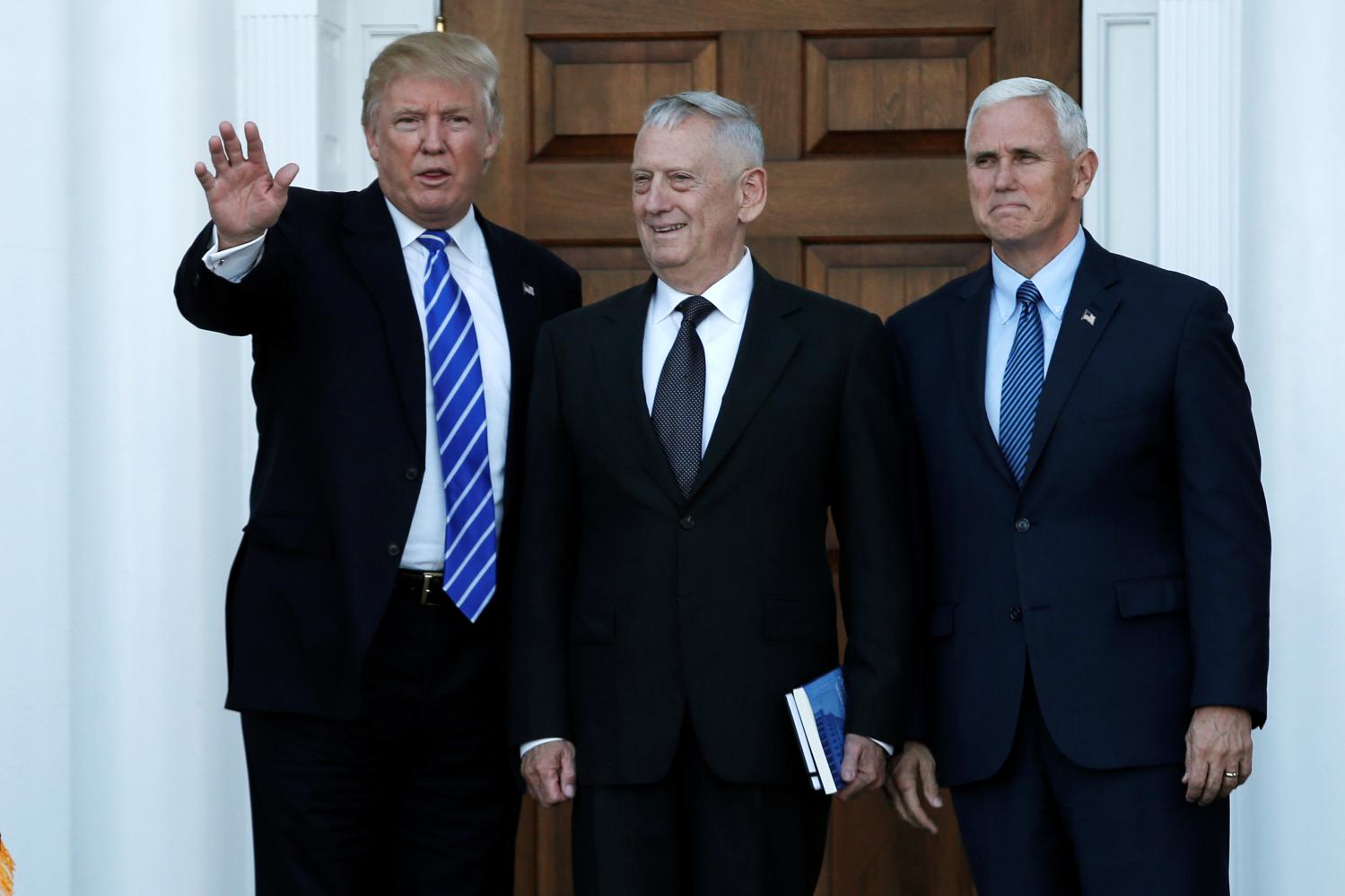
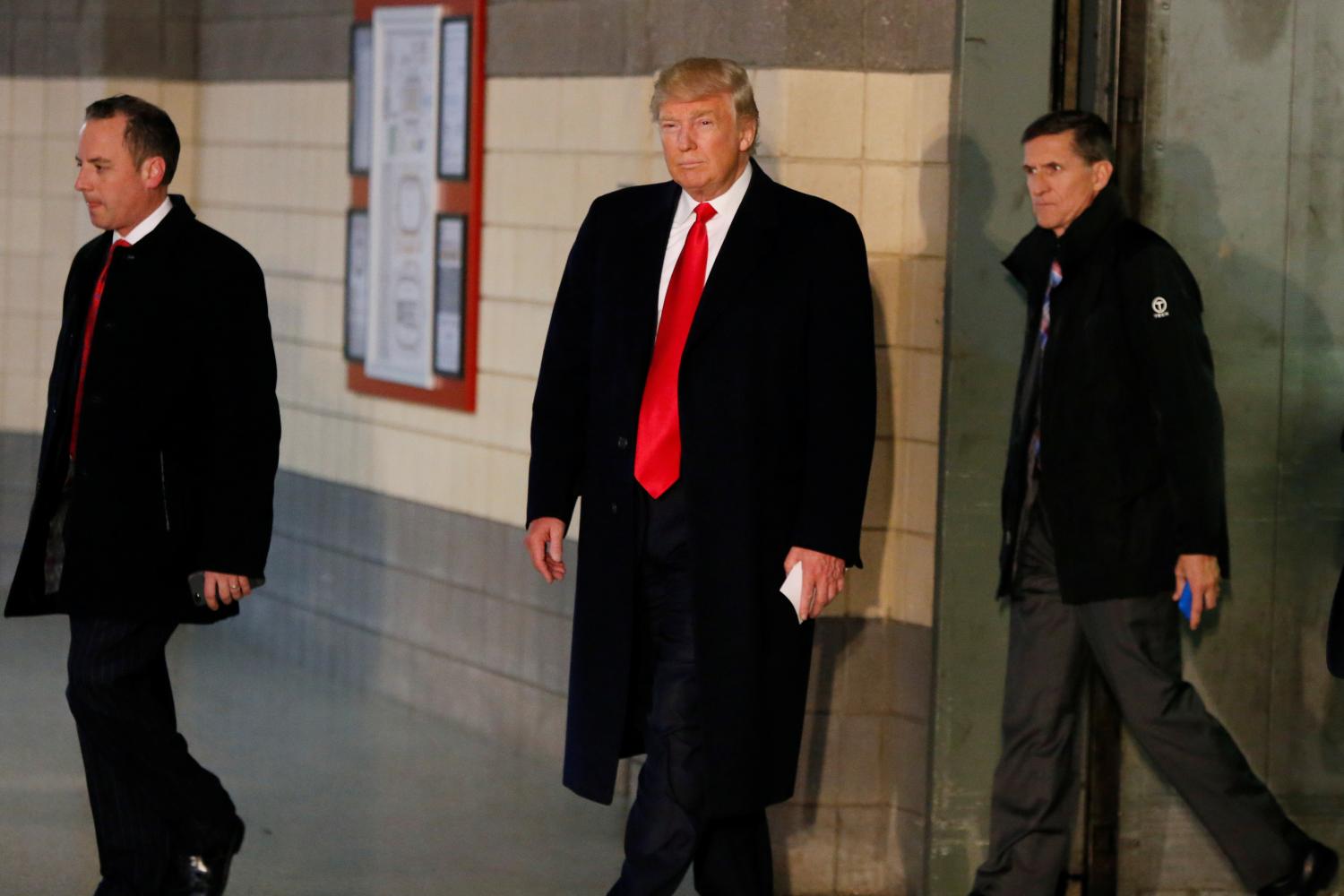
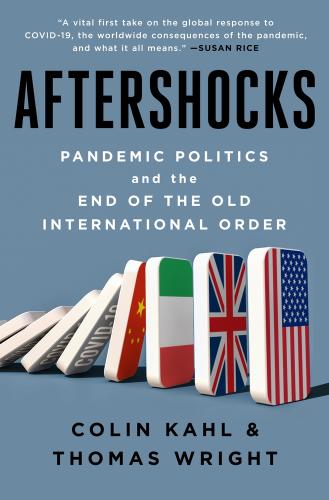

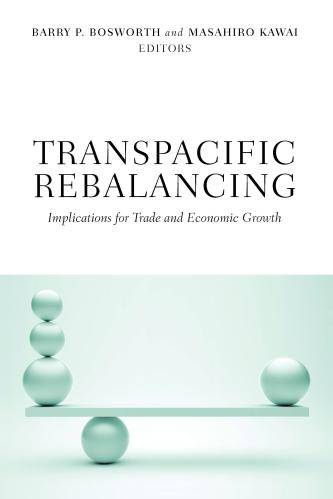
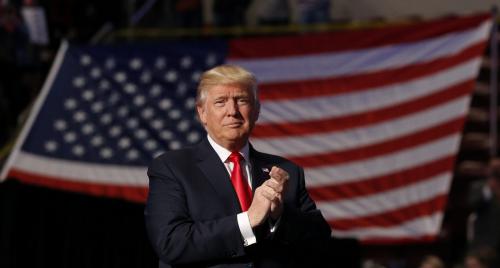
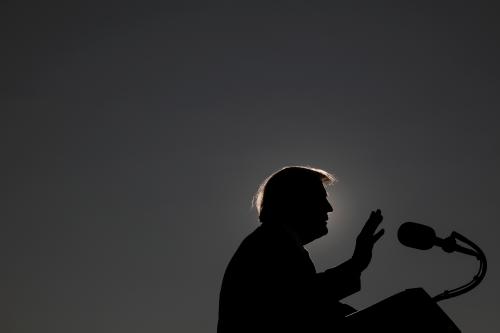
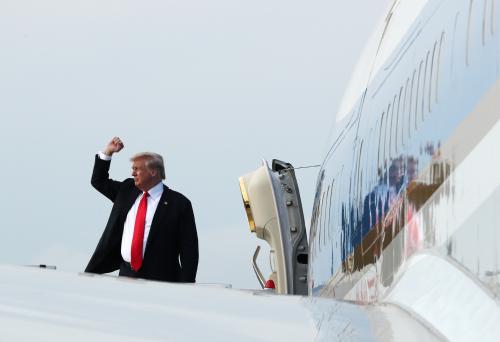




Commentary
Trump’s team of rivals, riven by distrust
December 15, 2016